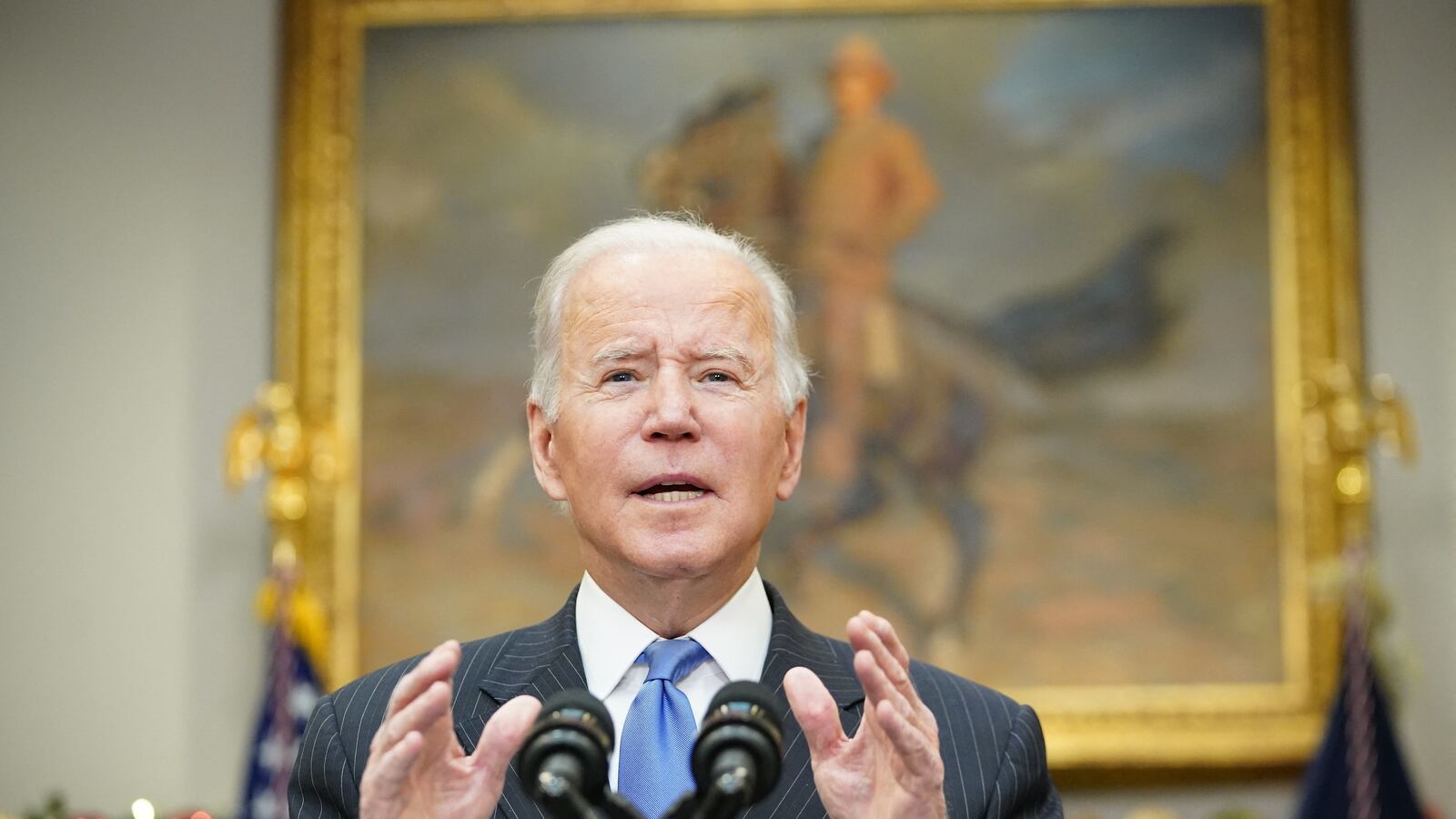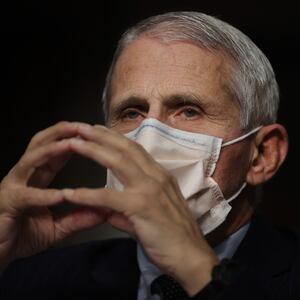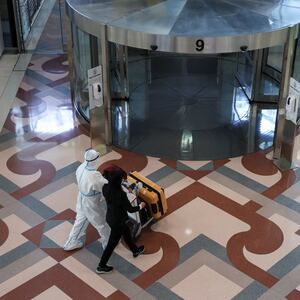Following news that the Omicron variant of the coronavirus had been detected in nearly 20 countries across the world, President Joe Biden told Americans on Monday that the new mutation is “cause for concern—not cause for panic.”
While many of the variant’s specifics—from its contagiousness to its virulence to its ability to dodge the body’s immune response—remain unknown, Biden pledged to “fight this variant with scientific and knowledgeable actions and speed.”
“Sooner or later, we are going to see cases of the Omicron variant here,” Biden said in the Roosevelt Room of the White House on Monday.
Flanked by Vice President Kamala Harris and Dr. Anthony Fauci, his chief medical adviser, Biden said first and foremost in the government’s response was to continue encouraging Americans to get vaccinated against the virus—and to seek boosters if they are eligible.
Omicron’s discovery in South Africa last week set off waves of panic in countries around the world, with a number of nations banning travel from African countries (a move that the World Health Organization condemned) and a massive market selloff that made the day after Thanksgiving the worst-performing Black Friday for the stock market in history.
As panic spread over the new variant, the White House issued its own ban on travel from eight African nations, which went into effect on Monday, and urged caution as scientists evaluate the transmissibility and severity of Omicron.
But the administration appears to already be preparing for bad news: Fauci, the president’s most prominent surrogate on public health matters, told NBC on Sunday that there is a “strong indication” that the Omicron variant is going to have “advantage in transmissibility and that it might evade immune protection.”
“The profile of the mutations strongly suggest that it's going to have an advantage in transmissibility and that it might evade immune protection that you would get, for example, from the monoclonal antibody or from the convalescent serum after a person’s been infected and possibly even against some of the vaccine-induced antibodies,” Fauci said. “It’s not necessarily that that’s going to happen, but it’s a strong indication that we really need to be prepared for that.”
The White House’s communications push on the variant remains unsynchronized, however—and not just when it comes to the pronunciation of the variant’s name, which both Biden and Fauci on Monday called “the Omnicron.”
Mere hours before the travel ban from South Africa and seven other nations was announced, Fauci told CNN that he was inclined to wait for more information on the variant before recommending any similar blocks on non-citizen arrivals.
“There is always the possibility of doing what the U.K. has done, namely block travel from South Africa and related countries,” Fauci said on Friday. “But you want to make sure there’s a basis for doing that.”
But in the absence of that information—which a White House readout released over the weekend indicated could take as long as two weeks to gather—the administration has doubled down on pushing measures that, at least so far, have reliably worked to stem the spread of the virus.
While Americans are “really tired about hearing those things,” Dr. Francis Collins, head of the National Institutes of Health, told CNN over the weekend, “the virus is not tired of us.”
“It ought to redouble our efforts to use the tools that we have, which are vaccinations and boosters, and to be sure we’re getting those to the rest of the world too,” Collins said. “It also means we need to pay attention to those mitigation strategies that people are just really sick of, like wearing masks when you’re indoors with other people who might not be vaccinated, and keeping that social distance issue.”
Or, as the president put it: “You have to get your vaccine, you have to get the shot, you have to get the booster. A fully vaccinated, boosted person is the most protected against COVID.”








